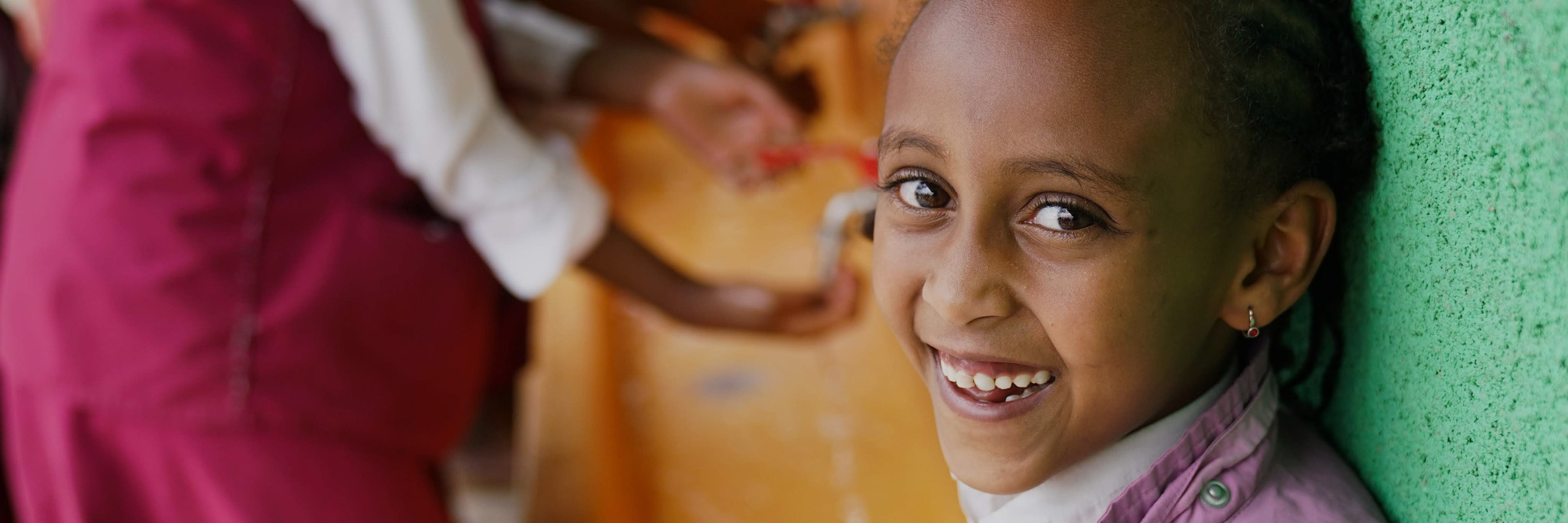Splash works to improve water, sanitation, hygiene (WASH), and menstrual health conditions for the urban poor, especially kids.

Splash is at the forefront of a growing movement to ensure that children in urban poverty have the resources they need to thrive and realize their full potential. We design child-focused water, sanitation, hygiene (WASH), and menstrual health solutions with governments in some of the world’s biggest cities.
Splash now serves more than one million kids in eight countries in Asia and Africa—and we're not stopping there.
With over a decade of experience implementing WASH projects in more than two thousand child-serving institutions, we have embarked on our biggest project yet: Project WISE.
Children
We focus on children because they are the most vulnerable to waterborne illness. Major threats to their health include malnutrition, stunting, and preventable diseases including diarrhea, typhoid, and cholera. Kids living in urban poverty regularly have no option but to drink unsafe water or use dirty toilets. The issue isn’t technology; it’s justice.
Schools
Schools are everywhere, even in the poorest urban communities. Studies have shown that school WASH interventions have been associated with reductions in illness and diarrhea. Improving sanitation facilities in schools can especially benefit girls during menstruation and may increase their school attendance. Yet, a survey of 60 countries found that less than half of primary schools have access to safe water and just over a third have adequate sanitation.
The landscape of poverty is shifting.
Urban
Given rapid population growth and urbanization, many governments already struggle to provide equitable WASH services to urban communities. As a result, children in informal settlements and resource-poor neighborhoods significantly lag behind in health and education. The problem is growing worse by the day as 3 million people move into cities every week around the world. By 2050, 70% of the world will live in cities, and by 2030, 25% will live in urban slums.
What next?
We are building a movement to ensure that children in urban poverty have the resources they need to thrive and realize their full potential.
Our goal is scale. We encourage others to replicate and improve upon our model. It is only then that we will have fundamentally changed markets and systems for good.
If we are still needed, then we haven't solved the problem.